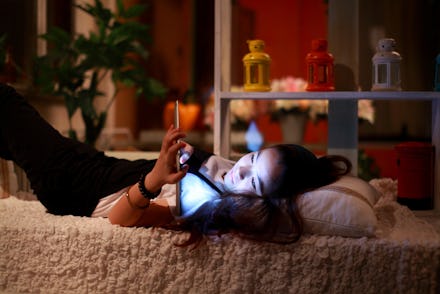Here's What Our "Sex Lists" Really Say About Us

We are what we document.
That seems to be the guiding mantra of our modern era. In this day and age, things don't seem real unless they're recorded, proof our of existence found in Facebook uploads and Instagram selfies. We are what we preserve, and documentation is how we define our personalities and remember our experiences.
And that includes sex.
As private as our sex lives are, there is clearly an impulse to document them, just as there's an impulse to document our vacations, our dinners, our conversations and our emotions. But the documenting isn't for broadcasting, as so much of social media is — it's for ourselves.
A long history of recording: Human beings have been recording sexual behavior for as long as we've been able to lift paintbrushes or chisels. In 2005, archaeologists discovered in Germany two 7,200-year-old clay figurines that depicted a man entering a woman from behind, with graffiti in pre-volcano Pompeii that essentially proclaims, "I screwed the barmaid."
That drive is now more acute than ever, given that digital technology has given us the tools to document in ways that early artists couldn't have foreseen. Who knew we'd all be carrying a computer in our pockets with enough memory to launch the 1969 moon landing, not to mention an excellent camera to record it? The ease of whipping out your phone when your partner is whipping it out means sexy pictures are easy to take and store.
Recording makes it feel real: But the photos and videos we take, and even more so the lists we type onto tiny screens, aren't necessarily about broadcasting one's self. Sometimes they are, from the unfortunate "sex selfie" to a subreddit called /gonewild, where users share sexy pics and ask others to comment. The urge to share is further furnished by no-storage tech communications, like Snapchat and Chatroulette, which appeal to users because they're temporary. "By taking out the forever part of a picture or text, more people want to share ... because they know it will eventually disappear," Yale student Chloe Drimal noted in an essay.
But the urge to document in a list or spreadsheet form has little to do with making a public statement or even sharing with another person privately. Given our propensity to record our everyday lives, getting our intimate encounters down on paper (or pixels) feels required to reflect just how important they are.
"If I didn't record it in some way, did it happen?" Rosa, 23, told Mic. "I mean, I know it did, but I don't know if I feel it the same when I don't record it as when I do."
We do it, as several people told said, with Excel docs or even with PowerPoints. There are those who make discrete lists of initials in the Notes app of their iPhones, and others who screencap OkCupid messages. Dolores, 28, told Mic, "I track all kinds of important memories, including sexual ones, in my private Google calendar."
The power to remember — or forget: Recording is inextricably wrapped up in memory, now more than ever, and not taking the photo or writing it down can mean forgetting entirely. Stephen, 34, told Mic, "I had a few one-night stands but I struggle to remember them now, as I have no record of them."
Which makes not recording the incident also powerful. Some who make lists of their sexual partners leave names off, omitting the ones they regret or that were bad experiences. If they aren't written down, maybe the entire experience can be erased.
That impulse to note the former lovers, good and bad, can also be about seeing progress or looking for patterns, as with the wife who charted the demise of her marriage through a sex spreadsheet, or picturing how you might be remembered later. "I like the idea of someone checking out what I have recorded when I am an old lady, or dead," Rosa said. "It's a fun thing to think about."
Then for others, recording the details of sexual experiences past is a source of comfort. "Recording a little bit of my sexual history partially comes from a fear of being alone," Luke, 29, said to Mic. "I struggle with feeling sexually desirable and I sort of am always cradling this fear that my partners are going to stop being sexual with me and those mementos are all I will have."
Making your own mark: Documentation is how we put our own mark on memory. Yes, the Internet is already littered with the memories of sexual experiences that might still haunt us, thanks to the ubiquity of social media. As Maureen O'Connor wrote in New York magazine, "Even if you only have sex once, you will spend time with your hookup when he finds you on Facebook, appears in a mutual friend's Instagram, or texts about a weird bump he found on his penis."
But each time we record our own experiences, on our own terms and in our own chosen formats, we're making a small but powerful decision to define ourselves and evaluate an experience for what it meant, then and now.
For for something as important and central to life as sex, not recording it actually seems crazier, considering everything we do bother recording. Without our records — the lists, the screenshots, the saved chats, the photos — our sexual partners, like our last un-Instagrammed sandwich, might seem gone with the wind.